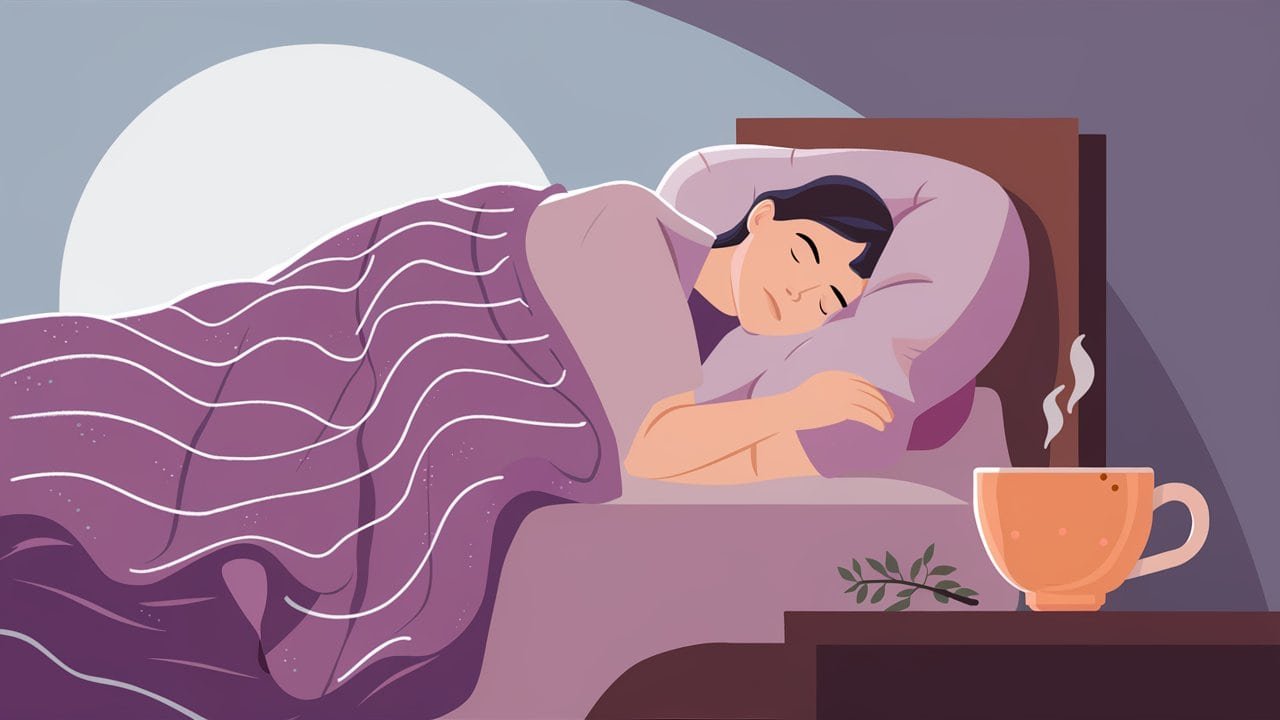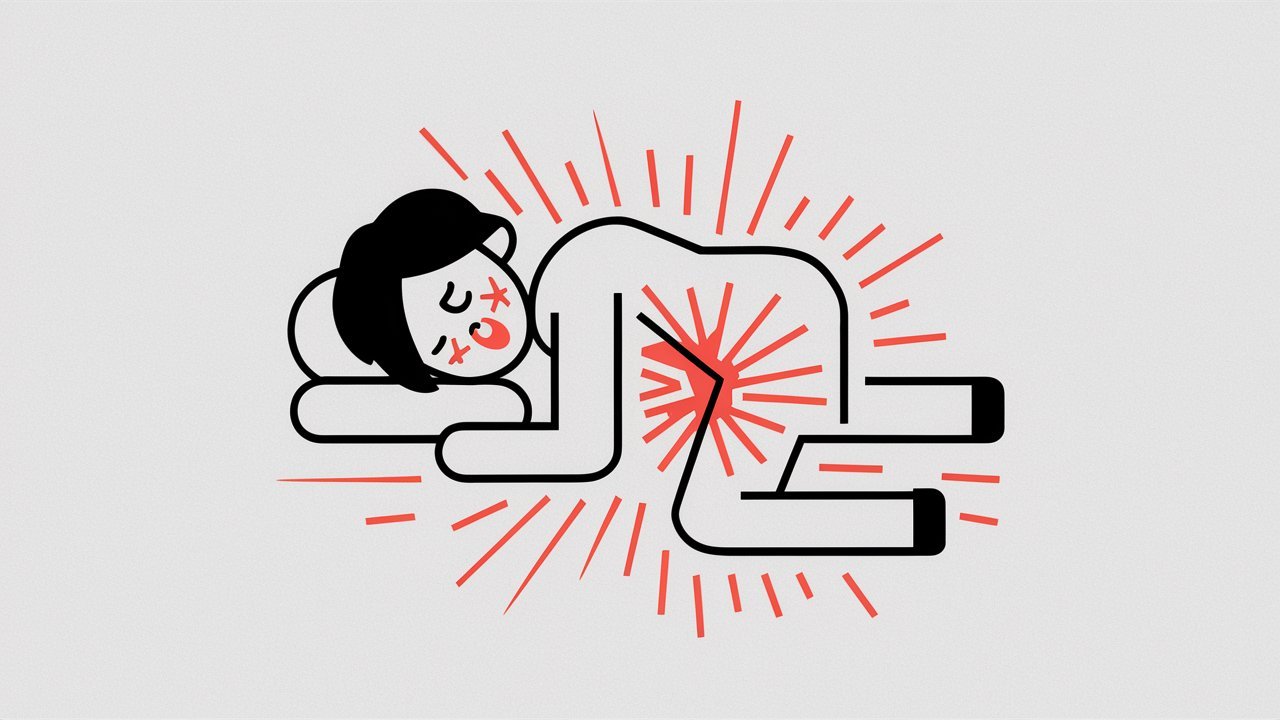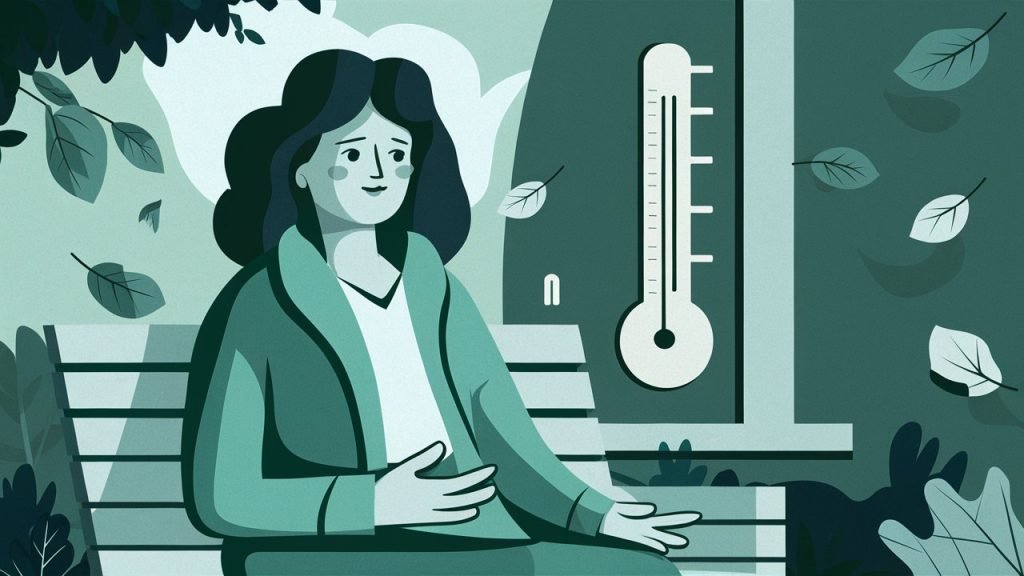10 Proven Health Benefits of Weighted Blankets
How do weighted blankets improve sleep, mood, and manage stress? Discover the science behind their proven health benefits and why you should consider one.

Did you know that using a weighted blanket can help you sleep better and feel less stressed? Weighted blankets are special blankets filled with tiny beads or pellets that make them heavier than regular blankets.
This extra weight creates a gentle pressure on your body, which can help you relax.
In this post, you will learn all the proven health benefits of weighted blankets based on published studies and expert opinions.
Let’s explore the science behind these cozy, helpful blankets!
Weighted Blankets Health Benefits
Weighted blankets provide numerous health benefits backed by clinical evidence. They can treat insomnia, assist children with ADHD in sleeping better, and alleviate pain and anxiety in trauma patients. Use the table of contents below to quickly navigate to the section of your choice.
1. Can Treat Insomnia
Many people with insomnia can find help by using weighted blankets. These blankets offer a way to improve sleep without using medicine.
Insomnia affects 30-50% of adults and is linked to serious health problems like obesity, high blood pressure, diabetes, and heart disease. Weighted blankets use deep pressure stimulation, which can help the body relax and improve sleep.
Studies support their effectiveness. Research shows that people who use weighted blankets see improvements in their Insomnia Severity Scale scores.
These blankets help people fall asleep faster and improve overall sleep quality, leading to better rest in the morning. They also reduce stress levels before sleep and increase feelings of relaxation, which is important for those with insomnia.
2. Help children with ADHD sleep better
Children with ADHD often have trouble sleeping. New research shows that weighted blankets can help them sleep better.
In a study, 94 children with ADHD and sleep problems tried both weighted and lighter blankets over two four-week periods (4 + 4 weeks). Researchers collected data using devices, questionnaires, and sleep diaries.
The study found that weighted blankets helped children sleep about 7.72 minutes longer and improved sleep efficiency by 0.82%. They also reduced wake time after falling asleep by 2.79 minutes. These improvements were small but important. However, the blankets didn’t help children fall asleep faster.
Further analysis showed that children aged 11-14 and those with the inattentive subtype of ADHD benefited more. For these groups, the increase in total sleep time was especially significant.
These findings suggest that weighted blankets could be a useful non-drug way to improve sleep quality in children with ADHD.
3. Can Reduce Pain and Anxiety in Trauma Patients
Using weighted blankets can help trauma patients feel less pain and anxiety. Clinical studies show this.
In one study at a trauma center, 24 patients were split into two groups. Half of them used weighted blankets for five days. These patients used less opioid medicine. They used 275.5 MME less, while the other group used 75 MME more.
Also, 78% of the patients with weighted blankets felt less pain. 56% felt less anxious. There was no big change in how much anxiety medicine they used. But the overall drop in pain and anxiety shows that weighted blankets can help trauma patients.
4. Can Improve Sleep Overall
Weighted blankets not only help with pain and anxiety in trauma patients but also improve overall sleep quality through deep pressure stimulation. This method boosts mood hormones like serotonin and melatonin and lowers stress hormones such as cortisol.
The result is a sense of calm and relaxation that makes it easier to fall asleep and stay asleep says Dr. Adam Perlman, Director of Integrative Health and Wellbeing Mayo Clinic Florida.
Experts suggest that the gentle, even pressure of a weighted blanket helps reduce nighttime movement and restlessness, leading to more continuous and uninterrupted sleep.
This is especially helpful for people with anxiety, depression, ADHD, and autism spectrum disorder. These people often find it easier to fall asleep and get better sleep quality.
Higher melatonin production is another important factor. Research shows that using a weighted blanket can increase melatonin levels by about 30%, which helps regulate the sleep-wake cycle. Higher melatonin levels can make you feel sleepy faster and shorten the time it takes to fall asleep.
5. Can Alleviate Anxiety
Weighted blankets can help reduce anxiety by giving you a comforting feeling, like a hug. This can lower stress by reducing cortisol levels and boosting serotonin and dopamine. These chemicals make you feel good and relaxed.
Studies support this claim as well. A 2022 study concluded that weighted blankets may help reduce anxiety in patients with anorexia nervosa and avoidant-restrictive food intake disorder when used alongside occupational therapy interventions.
Another study explored how weighted blankets could help patients in a mental health facility manage anxiety. They compared patients who used weighted blankets for 20 minutes with those who didn’t. Results showed that anxiety levels, significantly decreased in the group using weighted blankets. Pulse rates also lowered for these patients.
The study suggests that weighted blankets could be a safe alternative for anxiety management in psychiatric settings, potentially avoiding medications or physical restraints.
5. Can help with Restless leg syndrome
Weighted blankets can help people with Restless Leg Syndrome (RLS).
For example, a 20-year-old woman with periodic limb movement disorder (PLMD) had trouble sleeping and felt tired during the day. After using a weighted blanket and getting advice on sleep habits and lifestyle changes, she felt much better six weeks later
6. Can help with Chronic pain

Weighted blankets can help improve your mood and reduce chronic pain and fibromyalgia – a condition that causes widespread pain, tiredness, muscle stiffness, depression, and trouble sleeping.
They work through deep pressure stimulation, which is a type of therapy. This gentle pressure can lower pain levels.
A randomized-controlled trial showed that people using a 15-pound weighted blanket felt more pain relief than those using a 5-pound blanket.
Weighted blankets offer a way to manage pain without using medicine. The steady, gentle pressure can help lessen pain and improve sleep.
You can easily add a weighted blanket to your current pain management plan. They don’t get in the way of other treatments, so you can use them along with medications or physical therapies.
7. Help autistic people rest easier
Autistic people often find comfort in using weighted blankets. These blankets can help them sleep better. Many people with autism have trouble sleeping because they process sensory information differently.
According to PsychCentral, the use of weighted blankets for people with autism is based on a theory called sensory integration theory. This theory suggests that deep pressure has a calming effect on the nervous system, especially for those who are sensitive to touch.
Since many people with autism have differences in how they experience sensations, weighted blankets may help provide relief. Here’s how:
- Touch Sensitivity: Some people with autism may be sensitive to touch, which can make them uncomfortable with irregular sensations. Weighted blankets provide firm, widespread contact, which can be soothing. Signs of touch sensitivity may include pulling away from touch, avoiding certain textures in clothes or food, or only touching things with their fingertips to minimize contact.
- Body Awareness: People with autism often have a hard time perceiving their own bodies. Our bodies have receptors in each joint that constantly send messages to the brain about position and movement. Being able to sense where your body is and how it’s moving can be comforting and grounding, allowing for better control over reactions.
Although more research is needed, many parents and therapists report positive outcomes from using weighted blankets with people with autism
8. Can Make Menopause less annoying

For those going through menopause, using weighted blankets can help with common symptoms. One big problem during menopause is sleep trouble, often due to insomnia and night sweats.
As mentioned earlier, weighted blankets provide gentle pressure that helps the body release serotonin and melatonin, which are hormones that help with sleep. This can lead to better and deeper sleep. The pressure from a weighted blanket calms the nervous system and lowers stress levels. This can improve your mood and help you handle daily life better.
Hot flashes are another common symptom of menopause. Some weighted blankets (like this one), have cooling features, using breathable and moisture-wicking fabrics to keep you from getting too hot.
9. Can alleviate symptoms of Post-Traumatic Stress Disorder (PTSD)
Beyond helping with menopause, weighted blankets can also help ease symptoms of Post-Traumatic Stress Disorder (PTSD).
If you have trouble sleeping and feel anxious due to PTSD, a weighted blanket’s gentle, even pressure can make you feel safe and comforted.
Studies show that weighted blankets can help you fall asleep faster and sleep better. This is especially helpful if you have nightmares or insomnia. The deep touch pressure can slow your heart rate and help you breathe easier, lowering anxiety and preventing panic attacks.
For people with PTSD, this means fewer panic episodes and better sleep. Also, the extra serotonin helps you feel more content and calm, lifting your mood. The weight of the blanket keeps you from tossing and turning, which can wake you up.
10. Can make you more productive
Using a weighted blanket can help you sleep better, making you more productive during the day. Studies show that people who sleep well at night are 58% more productive than those who don’t get enough rest.
Weighted blankets can help by reducing how much you move around at night and helping you sleep deeper and longer.
When you fall asleep faster and stay asleep longer. you feel refreshed and you’re more likely to focus and get things done.
Conclusion
Adding a weighted blanket into your bedtime routine can greatly improve your well-being. Clinical evidence supports their role in boosting sleep quality, reducing insomnia, and alleviating anxiety and pain.
By promoting deep pressure stimulation, these blankets help regulate your sleep-wake cycle and balance mood-enhancing hormones while lowering stress hormones.
Whether managing ADHD, PTSD, fibromyalgia, or sensory processing disorder, weighted blankets offer a non-invasive, drug-free solution to enhance your overall quality of life.
More on Sleep
